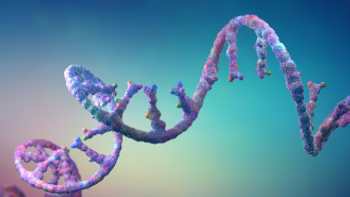
New Study Identifies Potential for Anticancer Drugs in Solanum Nigrum Fruits
A recent study analyzed the composition and metabolism of steroidal alkaloids in Solanum nigrum fruits of different maturities and identified steroidal glycoalkaloids and steroidal alkaloids, providing a foundation for further research on biosynthesis and discovery of new steroidal alkaloid anticancer drugs.
A recent study published in the Journal of Separation Science has identified 114 steroidal glycoalkaloids in Solanum nigrum fruits, a plant known for its potential as an anticancer drug source (1). Researchers from Beijing University of Chinese Medicine in Beijing, PR China used liquid chromatography-tandem mass spectrometry (LC–MS/MS) and molecular networking to study the composition and metabolism of steroidal alkaloids in fruits of different maturities. They found that during fruit ripening, the aglycones of steroidal alkaloids mainly undergo hydroxylation and carboxylation, and the sugar side chains mainly undergo acylation and glycosylation reactions.
Solanum nigrum, commonly known as black nightshade, contains steroidal alkaloids that have been shown to possess anticancer properties. These alkaloids have been reported to exhibit cytotoxicity against various cancer cell lines by inducing apoptosis, cell cycle arrest, and inhibiting tumor angiogenesis. Additionally, they have been found to have immunomodulatory effects that can help enhance the immune response against cancer cells. The potential anticancer activity of Solanum nigrum alkaloids has prompted further research to explore their therapeutic potential for cancer treatment.
LC–MS/MS is a powerful analytical technique that combines separation and detection of molecules in complex mixtures. It involves separating the sample components using liquid chromatography and then ionizing and detecting them using mass spectrometry. Tandem mass spectrometry involves isolating a specific ion and fragmenting it in the mass spectrometer to obtain structural information. LC–MS/MS is widely used in various fields, including drug discovery, clinical diagnosis, and metabolomics, to identify and quantify analytes in a sample. Molecular networking is a bioinformatics tool that allows for the visualization and analysis of mass spectrometry data based on the similarity of fragmentation patterns. It enables the identification of related compounds and the discovery of new molecules by comparing fragmentation patterns across different samples.
In this research, using a metabolism experiment in rats, 219 steroidal alkaloids were identified, with metabolic processes including deglycosylation, redox, sulfuric acid binding, acetyl binding, and glucuronic acid binding. The study found that steroidal alkaloids in mature fruits have high molecular weight and polarity, making them difficult to absorb, and most of them are excreted through feces and urine, which may be the reason for their poor efficacy.
While Solanum nigrum fruits have long been known for their potential as an anticancer drug source, the clinical treatment of cancer mainly uses immature fruits due to the toxic reactions that can occur when mature fruits are eaten directly. This study lays a foundation for research on the biosynthesis of steroidal alkaloids, and provides potential candidates for the discovery of new steroidal alkaloid anticancer drugs.
Reference
(1) Zhao, W.; Yan, T.; Huang, X.; Zhang, Y. Analysis of steroidal glycoalkaloids and their metabolites in Solanum nigrum fruits based on liquid chromatography-tandem mass spectrometry and molecular networking. J. Sep. Sci. 2023. DOI:
Newsletter
Join the global community of analytical scientists who trust LCGC for insights on the latest techniques, trends, and expert solutions in chromatography.




